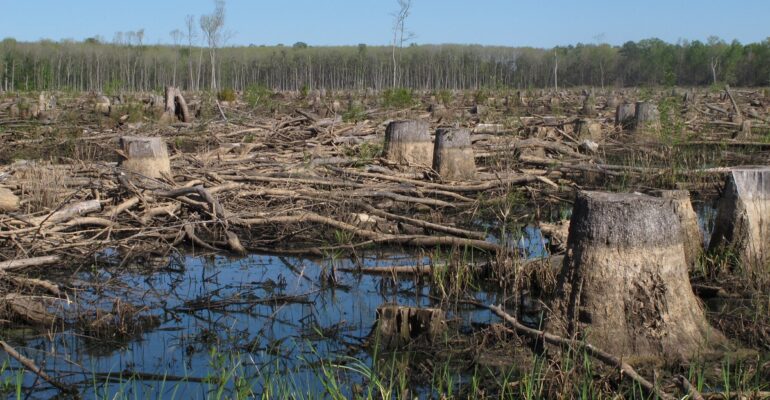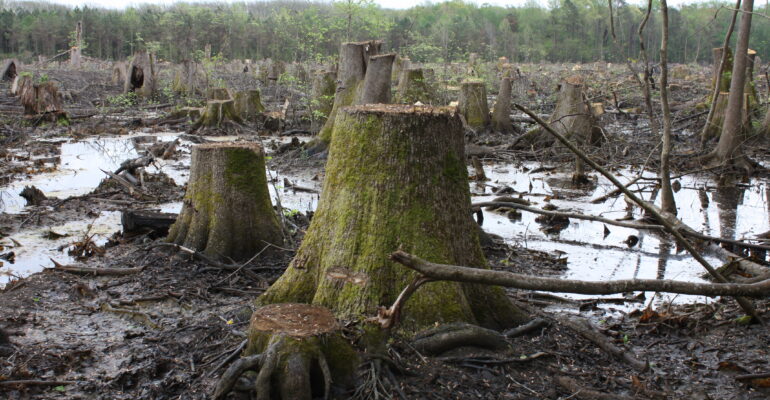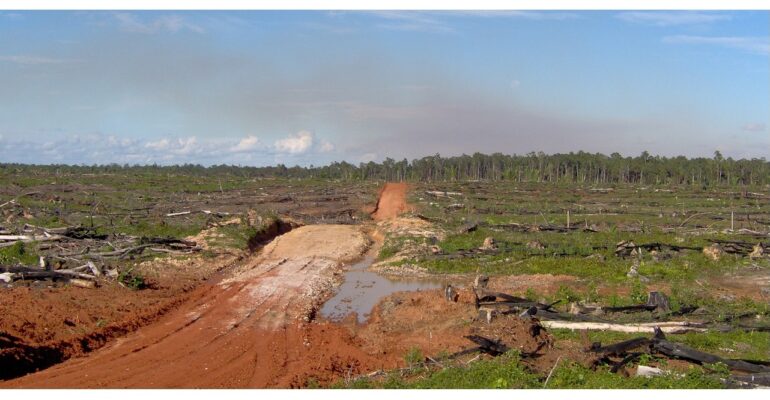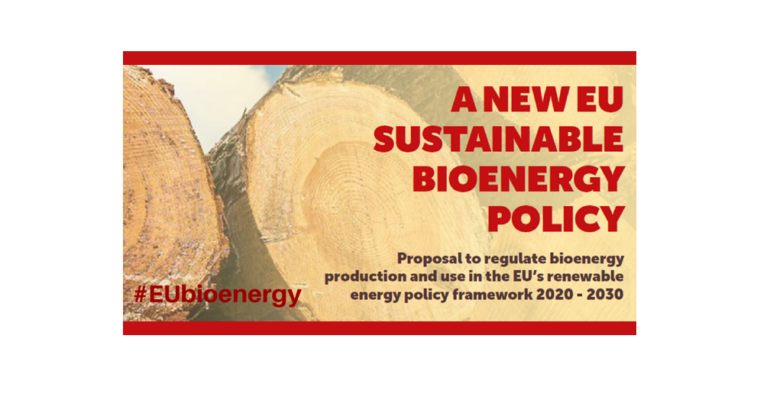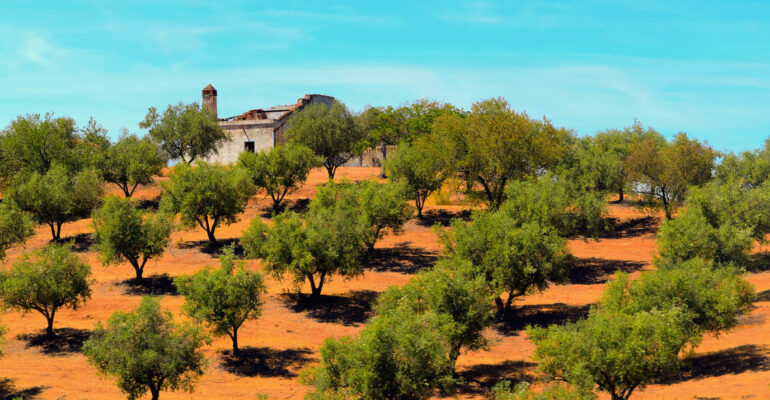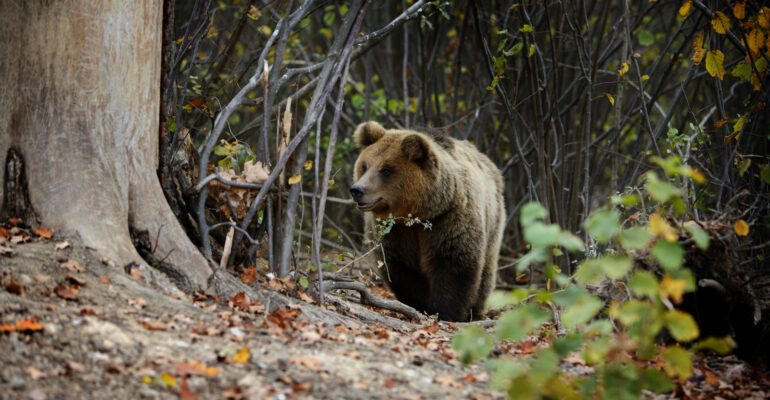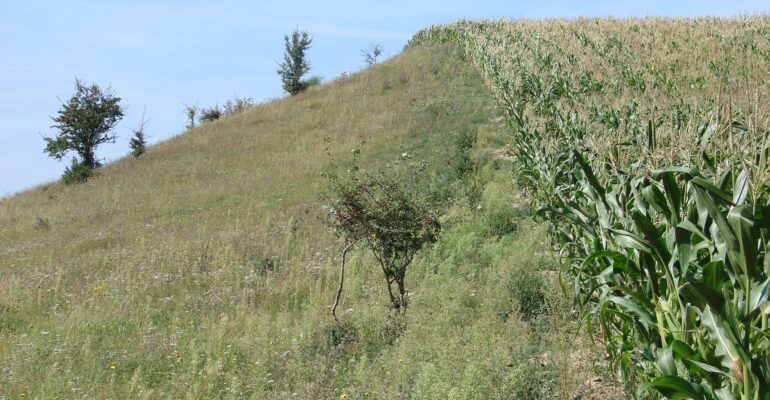News
All eyes on the Commissioners on the International Day of Action on Bioenergy
October 19th is the International Day of Action on Bioenergy, a day to raise awareness about the impacts of the growing bioenergy industry driven by unwisely designed renewable energy policies. As we know, in many cases bioenergy hasn’t exactly lived up to the promises of renewable energy such as emission reductions and environmental protection – in many cases the impacts have been quite the opposite.
Photoblog: a story of southern destruction
Seeing is believing, and witnessing first-hand the devastating effect that the European Union’s renewable energy policy is having on the forests and wetlands of the Southeast United States, offers overwhelming evidence of the urgent need to act.
Dramatic deforestation highlights EU ‘folly’ on biofuels
Some of the world’s most valuable forests are still being destroyed in order to make palm oil, of which a considerable portion ends up as biodiesel for use on Europe’s roads. That is the striking message from an investigation by a global alliance of NGOs, including T&E, that has uncovered horrific deforestation in Indonesia’s pristine rainforest in the remote province of Papua.
How NGOs would ensure that European bioenergy is sustainable
We all agree that bioenergy used as part of the transition to move to an energy system based on renewables needs to be sustainable. By now, most of us already recognize that not all bioenergy is necessarily sustainable. Looking at ongoing environmental impacts on forests and agricultural landscapes due to increased logging or more intensive management, looking at rights of communities dependent on land cleared for bioenergy crops, looking at actual emission savings achieved… not all bioenergy is beneficial.
Between sovereignty and extraction, bioenergy in rural areas
Rural development and helping farmers has been a motive to promote bioenergy on the premise that it offers new economic opportunities in rural communities while increasing renewable energy use. The reality is that a good share of the bioenergy pushed for this purpose hasn’t necessarily supported these rural communities, nor has it exactly been sustainable or renewable. Spanish NGO Ecologistas en Accion share their views on how bioenergy can be an environmentally sustainable choice while supporting rural communities.
Green Invasion
Green Invasion By guest author Fred Pearce, author and journalist Europe’s once peaceful forests are being invaded – in the name of green energy. To meet European Union policies for reducing greenhouse gas emissions and promoting renewable electricity and heating, governments from France to Romania are providing huge subsidies for
Is the EC taking bad biofuels out of the picture?
Is the EC taking bad biofuels out of the picture? By Cristina Mestre, Climate and Biofuels Officer, Transport & Environment July 20th was marked in bright red in many of our calendars. While waving some colleagues off on their long-awaited summer break, we were waiting for the launch of the European
Bioenergy emissions, just counting isn’t enough
Bioenergy emissions, just counting isn’t enough By Sini Eräjää, Policy Officer EU Bioenergy, Birdlife Europe and Central Asia and the European Environmental Bureau As the European Commission published its new climate policy this week to address emissions from land and forests (LULUCF), the Commission also stated that the new proposal
European Court of Auditors slams Commission’s scheme for sustainability of biofuels
European Court of Auditors slams Commission’s scheme for sustainability of biofuels The European Court of Auditors, an independent EU body that keeps an eye on the performance of EU spending, just published a special report on the sustainability of biofuels in the EU. The report straightforwardly concludes that the way

